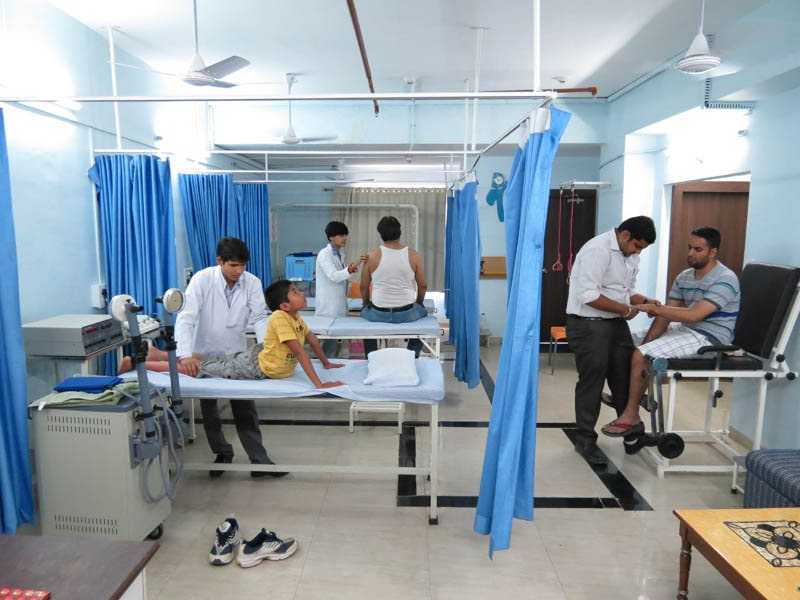
Mumbai’s alcohol rehabilitation centres employ a diverse range of evidence-based therapies to address addiction’s physical, psychological, and emotional complexities. These therapies are tailored to help individuals rebuild their lives, offering tools to manage cravings, heal trauma, and prevent relapse. Here’s a closer look at the most effective therapies utilized in leading alcohol rehabilitation centres in Mumbai.
1. Cognitive Behavioral Therapy (CBT)
Cognitive Behavioral Therapy is a cornerstone of addiction treatment. This therapy helps individuals identify and reframe negative thought patterns that contribute to substance use. By teaching coping strategies for triggers like stress or social pressure, CBT empowers patients to replace destructive behaviours with healthier responses. Alcohol rehabilitation centre in Mumbai integrates CBT into personalized treatment plans, ensuring long-term behavioural change.
2. Motivational Interviewing (MI)
Motivational Interviewing focuses on enhancing a person’s intrinsic motivation to quit drinking. Through empathetic, non-confrontational conversations, therapists guide patients to articulate their reasons for change. This approach is particularly effective for those ambivalent about recovery, as it fosters self-efficacy and commitment. Mumbai’s rehab centres often use MI during early treatment stages to build a strong foundation for sustained sobriety.
3. Group Therapy Sessions
Group therapy creates a supportive community where individuals share experiences and learn from peers. Facilitated by trained counsellors, these sessions reduce feelings of isolation and normalize the challenges of recovery. Topics might include relapse prevention, emotional regulation, or rebuilding trust. In Mumbai’s alcohol rehabilitation centres, group dynamics often accelerate healing by fostering accountability and mutual encouragement.
4. Family Therapy
Addiction impacts entire families, making family therapy a critical component of treatment. Therapists work with relatives to improve communication, address codependency, and establish healthy boundaries. By involving loved ones in the recovery process, Mumbai’s rehab centres help repair fractured relationships and create a stable home environment conducive to sobriety.
5. Holistic Therapies: Yoga and Meditation
Holistic therapies address the mind-body connection, promoting overall wellness. Yoga and meditation are widely practised in Mumbai’s rehab centres to reduce stress, enhance mindfulness, and improve emotional resilience. These practices complement traditional therapies by teaching patients to manage cravings through breathwork and relaxation techniques.
6. Art and Music Therapy
Creative therapies like art and music provide non-verbal outlets for processing emotions. Painting, drumming, or lyric writing allows individuals to express trauma or guilt that words alone cannot capture. Mumbai’s alcohol rehabilitation centres often use these modalities to help patients reconnect with their creativity and self-identity beyond addiction.
7. Medication-Assisted Treatment (MAT)
For severe alcohol dependence, Medication-Assisted Treatment (MAT) may be prescribed to ease withdrawal symptoms and reduce cravings. Medications like Naltrexone or Acamprosate are used under medical supervision, combined with counselling for holistic care. Mumbai’s rehab centres ensure MAT is tailored to individual needs, prioritizing safety and efficacy.
8. 12-Step Facilitation Therapy
Rooted in the principles of Alcoholics Anonymous, 12-step Facilitation Therapy introduces patients to peer support networks and structured recovery frameworks. This therapy emphasizes surrender to a higher power, moral inventory, and making amends. Alcohol rehabilitation centre in Mumbai incorporates 12-step programs to help patients build lifelong support systems.
9. Dialectical Behavior Therapy (DBT)
Originally designed for borderline personality disorder, DBT has proven effective in treating addiction. It teaches skills like distress tolerance, emotional regulation, and interpersonal effectiveness. Patients learn to navigate high-risk situations without turning to alcohol, making DBT a valuable tool in Mumbai’s rehab programmes.
10. Aftercare and Relapse Prevention Planning
Recovery doesn’t end with treatment—it requires ongoing support. Mumbai’s alcohol rehabilitation centres design aftercare plans that include outpatient counselling, sober living referrals, and alumni networks. Relapse prevention strategies, such as identifying early warning signs and creating emergency action plans, ensure patients remain equipped to handle post-rehab challenges.
Conclusion
From CBT to holistic practices, Mumbai’s alcohol rehabilitation centres offer a multifaceted approach to addiction recovery. These therapies address not just the symptoms of alcoholism but its root causes, fostering lasting transformation. By combining science-backed methods with compassionate care, these centres provide individuals with the resilience and tools needed to reclaim their lives. Whether through group support, creative expression, or medical intervention, Mumbai’s rehab programmes stand as beacons of hope for those seeking sobriety.